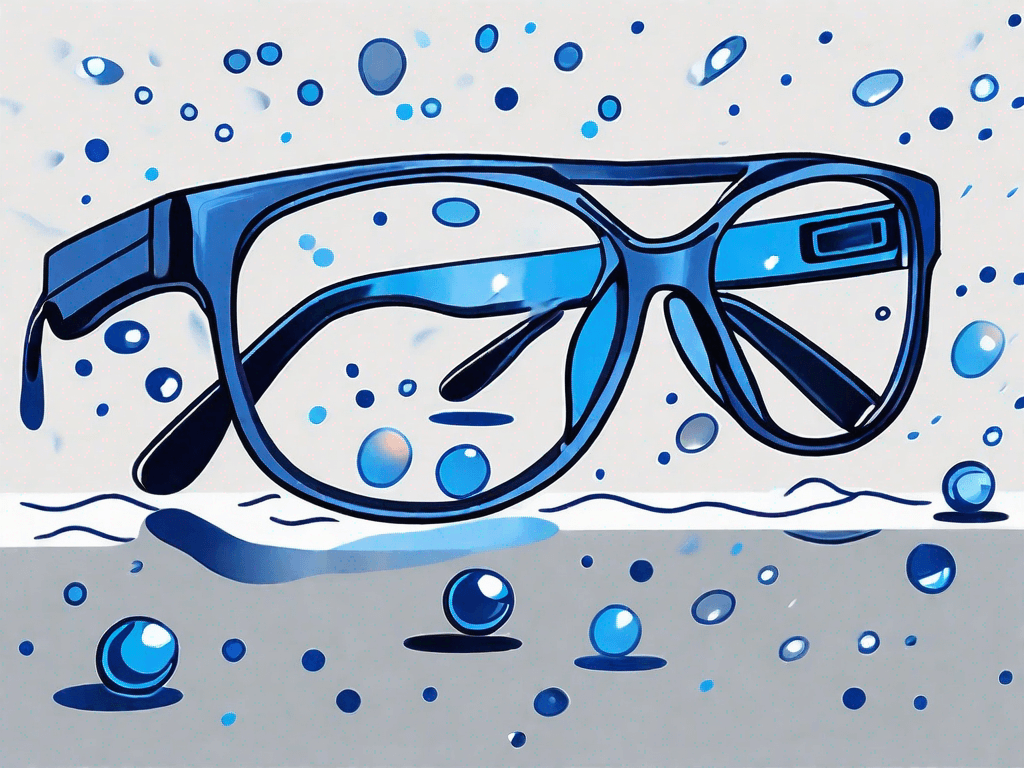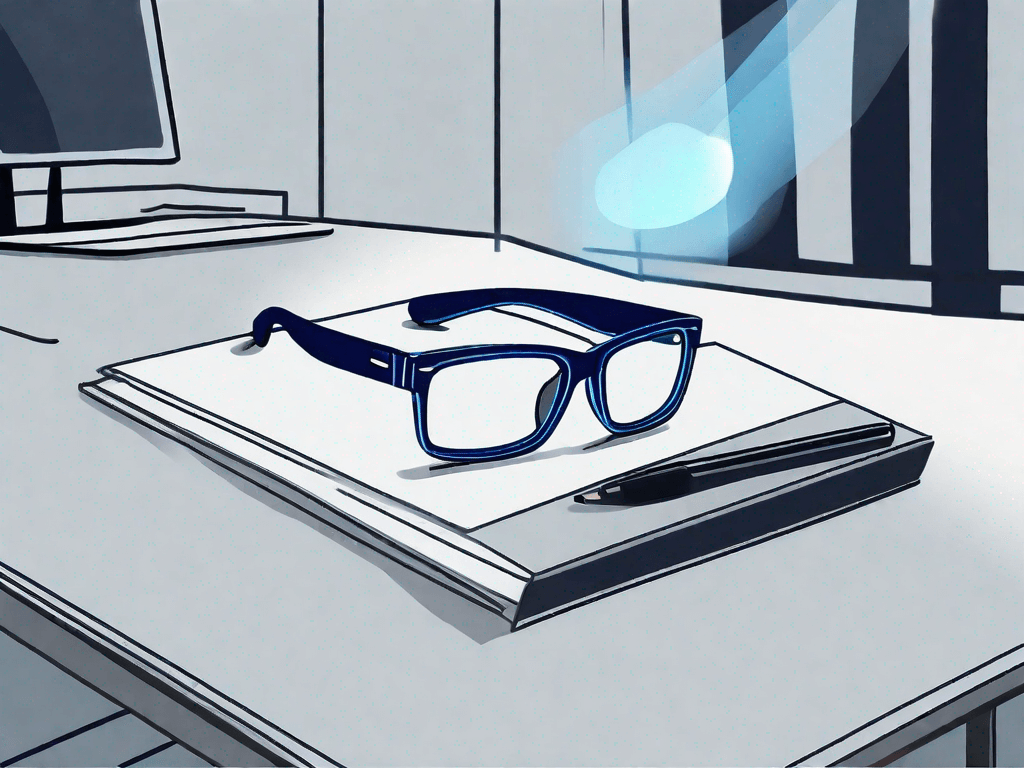Does Vision Insurance Cover Blue Light Glasses?
In today's digital age, our eyes are constantly exposed to the harmful effects of blue light emitted from electronic devices such as smartphones, tablets, and computer screens. Blue light can cause eye strain, blurred vision, headaches, and even disrupt our sleep patterns. To combat these issues, many people are turning to blue light glasses. But, what about the cost? Does vision insurance cover blue light glasses? Let's delve into the world of vision insurance and explore the coverage options for blue light glasses.
Understanding Vision Insurance
To understand whether vision insurance covers blue light glasses, it is essential to have a basic understanding of vision insurance itself. Vision insurance is a specialized type of insurance that focuses on eye care and vision-related expenses. It helps individuals cover the costs associated with routine eye exams, prescription eyewear, and sometimes even eye surgeries.
What is Vision Insurance?
Vision insurance is a type of health insurance that specifically covers eye care expenses. While regular health insurance may cover eye-related procedures due to medical conditions or accidents, vision insurance primarily caters to routine eye exams and prescription eyewear needs. It usually operates on a vision benefits package, which can cover a portion or the entire cost of eye care services.
When it comes to vision insurance, there are various factors to consider. These include the type of coverage, the network of providers, and the specific benefits offered. Understanding these aspects can help individuals make informed decisions about their eye care needs.
Types of Vision Insurance Plans
Vision insurance plans vary depending on the provider and specific coverage options. The most common types of vision insurance plans include:
- Employer-based vision plans: These are often offered as part of an employee benefits package and can be fully or partially funded by the employer. These plans typically provide coverage for routine eye exams, prescription eyewear, and sometimes even contact lenses. Some employers may also offer additional benefits such as discounts on LASIK surgery or specialized vision treatments.
- Individual vision plans: These plans are purchased directly by individuals and can be customized based on their specific needs and budget. They offer flexibility in terms of provider choice and coverage options. Individual vision plans may include benefits such as coverage for eye exams, eyeglasses, contact lenses, and discounts on vision correction procedures.
- Medicare vision plans: Medicare, the federal health insurance program for individuals aged 65 and older, offers limited vision coverage. Original Medicare (Part A and Part B) does not cover routine eye exams or eyeglasses. However, some Medicare Advantage plans (Part C) may include vision benefits, such as coverage for eye exams, eyeglasses, and contact lenses. It is important for Medicare beneficiaries to review their plan's specific vision coverage to understand what services are included.
Choosing the right vision insurance plan depends on individual needs and preferences. Some individuals may prioritize comprehensive coverage, while others may focus on affordability. It is advisable to carefully review the details of each plan, including the network of providers, coverage limits, and any additional benefits offered.
In conclusion, vision insurance plays a crucial role in helping individuals manage their eye care expenses. By understanding the basics of vision insurance and the different types of plans available, individuals can make informed decisions about their eye care needs and ensure they have access to the necessary services and treatments.
The Basics of Blue Light Glasses
Blue light glasses, also known as blue-blocking glasses, are specially designed eyewear that helps reduce the harmful effects of blue light on our eyes. They feature lenses with a special coating that filters out a significant portion of blue light emitted from digital screens.
Blue light glasses are becoming increasingly popular as more and more people spend extended hours in front of digital devices. With the rise of smartphones, tablets, and computers, our exposure to blue light has significantly increased, leading to potential eye strain and other health issues.
What are Blue Light Glasses?
Blue light glasses are essentially eyeglasses with lenses that have a filtering ability to block or absorb blue light. These lenses are often tinted yellow or amber, as these colors are known to effectively block blue light. By wearing blue light glasses while using digital devices, the wearer can reduce eye strain and minimize potential damage to the eyes.
But how do blue light glasses work? The special coating on the lenses of these glasses filters out a specific range of blue light wavelengths, preventing them from reaching our eyes. This filtering process helps to reduce the amount of blue light that enters our eyes, thus minimizing the strain on our eyes and potentially preventing long-term damage.
It's important to note that not all blue light is harmful. Blue light is a natural part of the light spectrum and is present in sunlight. However, the excessive exposure to artificial blue light from digital screens can have negative effects on our eyes and overall well-being.
The Benefits of Blue Light Glasses
The benefits of wearing blue light glasses extend beyond reducing eye strain. Studies have suggested that exposure to blue light can disrupt our sleep patterns by suppressing the production of melatonin, the hormone that regulates our sleep-wake cycle. Blue light glasses can help mitigate this effect, enabling us to have a better night's sleep.
Additionally, blue light glasses can help alleviate symptoms of digital eye strain, also known as computer vision syndrome. Symptoms of digital eye strain include dry eyes, blurred vision, headaches, and neck and shoulder pain. By reducing the amount of blue light that reaches our eyes, blue light glasses can provide relief from these uncomfortable symptoms.
Furthermore, blue light glasses can be beneficial for individuals who spend a significant amount of time in front of screens for work or leisure activities. Whether you're a student, office worker, or avid gamer, wearing blue light glasses can help protect your eyes from the potential long-term effects of blue light exposure.
It's worth mentioning that while blue light glasses can be effective in reducing the harmful effects of blue light, they are not a cure-all solution. It's still important to practice healthy screen habits, such as taking regular breaks, adjusting screen brightness, and maintaining proper posture while using digital devices.
In conclusion, blue light glasses are a valuable tool for minimizing the negative impact of blue light on our eyes. By wearing these specially designed glasses, we can protect our eyes from eye strain, improve our sleep quality, and enhance our overall well-being in our digital-centric world.
Coverage of Blue Light Glasses
Now that we understand the basics of vision insurance and blue light glasses, let's explore whether vision insurance covers the cost of these specialized eyeglasses.
Blue light glasses have gained popularity in recent years due to the increasing use of digital devices and exposure to artificial blue light. These glasses are designed to filter out blue light, which is emitted by electronic screens and can potentially cause eye strain, fatigue, and sleep disturbances.
When it comes to coverage for blue light glasses, several factors come into play. These factors can vary depending on the specific vision insurance plan and the reason for wearing the glasses.
Factors Affecting Coverage
Coverage for blue light glasses can vary depending on several factors, including the specific vision insurance plan and the reason for wearing them. Some vision insurance plans may offer coverage for blue light glasses as part of their standard benefits package, while others may have separate add-on options for blue light protection.
It's important to note that the reason for wearing blue light glasses can also impact coverage. For example, if you have a medical condition that requires the use of blue light glasses, such as computer vision syndrome or chronic migraines triggered by screen time, your vision insurance may be more likely to cover the cost.
Some vision insurance plans may require a prescription for blue light glasses in order to provide coverage. This means that you may need to visit an eye care professional and have your eyes examined to determine if blue light glasses are necessary for your specific needs.
Typical Coverage for Eyewear
Most vision insurance plans include coverage for prescription eyewear, such as eyeglasses and contact lenses. However, the level of coverage may differ depending on the plan. Some plans may have fixed allowances for frames and lenses, while others may offer a percentage-based coverage.
When it comes to blue light glasses, coverage may be treated similarly to prescription eyewear. If your vision insurance plan covers prescription eyewear, there is a possibility that it may also cover blue light glasses, especially if they are prescribed by an eye care professional.
It's important to review your vision insurance plan's coverage details or contact your insurance provider directly to understand the specific coverage for blue light glasses. This will help you determine if you are eligible for reimbursement or if you need to pay out-of-pocket for these specialized eyeglasses.
Coverage for blue light glasses can vary depending on factors such as the specific vision insurance plan, the reason for wearing the glasses, and whether a prescription is required. Understanding your vision insurance coverage and consulting with an eye care professional can help you determine the best course of action when it comes to obtaining blue light glasses.
Insurance Policies and Blue Light Glasses
When it comes to taking care of your eyes, understanding your insurance coverage is crucial. If you're considering getting blue light glasses, it's important to review your insurance policy carefully to determine whether they are covered.
Reading Your Insurance Policy
Before diving into the specifics of blue light glasses coverage, start by reading the details of your vision insurance policy. Take the time to familiarize yourself with the terms and conditions, as well as any limitations or exclusions that may apply.
As you peruse your policy, keep an eye out for any mention of coverage for specialized eyewear or blue light protection. Some insurance plans may have specific provisions for these types of glasses, while others may not.
Questions to Ask Your Insurance Provider
If you find yourself unsure about the coverage for blue light glasses after reviewing your policy, it's always a good idea to contact your vision insurance provider directly. By reaching out to them, you can get the most accurate and up-to-date information regarding your coverage.
Here are a few questions you may want to ask your insurance provider:
- Does my vision insurance plan cover blue light glasses?
- If blue light glasses are covered, what is the level of coverage?
- Are there any specific requirements or conditions for coverage?
By asking these questions, you can gain a better understanding of what your insurance plan offers in terms of blue light glasses coverage. Remember, each insurance provider may have different policies and guidelines, so it's essential to get the information directly from them.
Some insurance plans may require you to meet certain criteria or obtain a prescription from an eye care professional before they will cover the cost of blue light glasses. It's important to inquire about any specific requirements to ensure you meet all necessary conditions for coverage.
Once you have gathered all the information you need, you can make an informed decision about whether to pursue blue light glasses and how to navigate your insurance coverage. Taking the time to understand your policy and communicate with your insurance provider will help you make the best choices for your eye health.
Alternatives if Blue Light Glasses are Not Covered
In the unfortunate event that your vision insurance does not cover blue light glasses, there are still options available to obtain these beneficial eyewear devices.
Out-of-Pocket Purchase
One option is to purchase blue light glasses out-of-pocket. Many optical stores and online retailers offer a range of blue light glasses at various price points. While this may require an upfront investment, it provides the freedom to choose the specific frame style and level of blue light protection desired.
When purchasing blue light glasses out-of-pocket, it's important to consider factors such as the quality of the lenses and the durability of the frames. Investing in a reputable brand can ensure that you are getting the best possible protection for your eyes.
Some retailers offer warranties or guarantees on their blue light glasses, providing added peace of mind. These warranties may cover issues such as lens scratches or frame damage, allowing you to enjoy your blue light glasses for an extended period of time.
Health Savings Accounts and Flexible Spending Accounts
If you have a Health Savings Account (HSA) or a Flexible Spending Account (FSA), you can utilize these funds to cover the cost of blue light glasses. HSAs and FSAs allow individuals to set aside pre-tax funds for eligible medical expenses, including eyewear.
Using your HSA or FSA to purchase blue light glasses not only helps protect your eyes from the harmful effects of blue light, but it also provides a tax advantage. By using pre-tax dollars, you can save money on your overall healthcare expenses.
It's important to note that HSA and FSA funds typically have a "use it or lose it" policy, meaning that any funds not used by the end of the plan year may be forfeited. Therefore, if you have funds available in your HSA or FSA, it's a wise decision to consider using them for blue light glasses before they expire.
When using HSA or FSA funds for blue light glasses, it's essential to keep proper documentation of the purchase. This documentation may be required for reimbursement or verification purposes, so be sure to retain receipts and any other relevant paperwork.
By exploring these alternatives, you can still obtain the benefits of blue light glasses even if they are not covered by your vision insurance. Whether you choose to purchase them out-of-pocket or utilize your HSA or FSA funds, protecting your eyes from the harmful effects of blue light is a worthwhile investment in your overall eye health.
Conclusion: Does Vision Insurance Cover Blue Light Glasses?
The coverage of blue light glasses by vision insurance plans can vary. It depends on factors such as the specific insurance plan and the individual's needs. While some plans may include coverage for blue light glasses, others may not. Therefore, it is crucial to review your vision insurance policy and contact your insurance provider directly to determine the level of coverage for blue light glasses. If vision insurance does not cover these specialized glasses, alternatives such as out-of-pocket purchase or utilizing HSA or FSA funds are worth considering. Prioritizing eye health and finding ways to protect our eyes from the harmful effects of blue light is essential in today's digital world.





